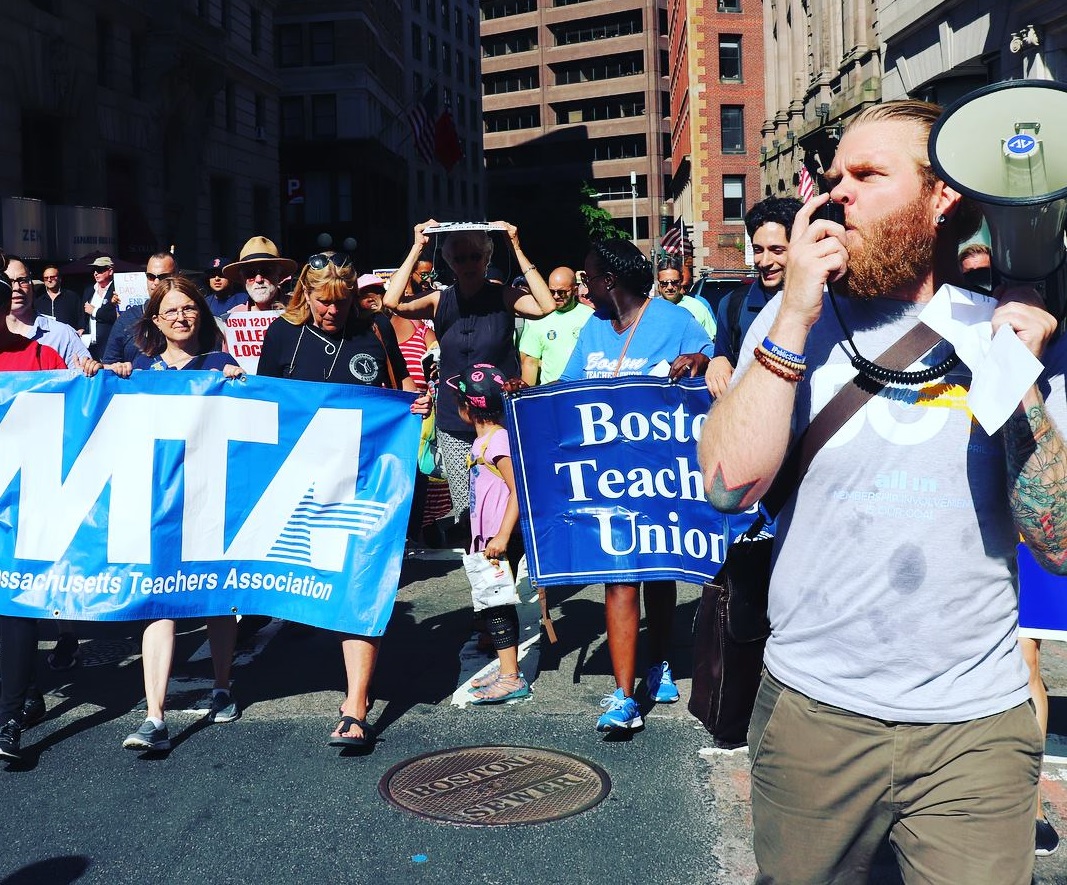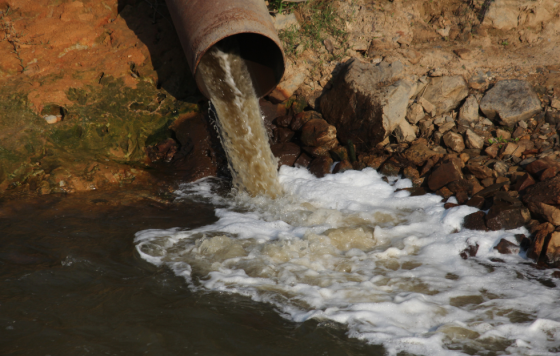
Interview by Nina Frame
This is the third in a series of interviews with Clean Water Action Massachusetts Advisory Board Members.
Jeremy Shenk is a proud father of three looking to better the world for Generation Z with the help of Millennials. He formerly coordinated the Green Justice Coalition while working at Community Labor United. Now, he works on the American Federation of Teachers. With a background working with both the labor and environmental movements, Jeremy brings an aspect of unity to the Advisory Board.
How long have you been working with Clean Water Action?
I’ve been working with Clean Water Action for ten years if you count all the time with the Green Justice Coalition, which Clean Water Action is central to. I’ve been a member of Clean Water Action since I came to the American Federation of Teachers.
Why did you decide to work for the AFT?
My kids are in Boston public schools and I was doing a lot of public school parent activism and collaboration with the Boston Teachers Union. I cared deeply about the health of our public schools and working with parents and teachers. I was thinking about working at a teachers’ union and had been looking around the space of educational justice and labor rights so I had a transition period at Community Labor United and then moved over to AFT Massachusetts.
So your kids are a major influence on why you do the work you do?

What inspires you to work with Clean Water Action on the Advisory Board?
A lot of it comes back to the work that Cindy [Luppi, New England Director] and Alex [Papali, Green Justice Organizer] were doing with the Green Justice Coalition. I was coming onto it from the union side of the work, building trades unions and community groups in communities of color and Clean Water really helped these unions and community groups navigate this world of environmental activism, which is not easy to do if you’re not familiar with it. Clean Water brings in crucial concerns about environmental justice and environmental racism and the importance of thinking deeply about what happens to the people who work in the industries like coal-fired plants, presenting a people-centered lens to the work, if we are going to close coal-fired power plants, we need to have transition plans.
What advice do you have for young adults looking to join the environmental movement?
I am increasingly getting the opportunity to work with young people. We have the Education Justice Alliance (https://massedjustice.org/), which is local and statewide. The coordinator is 23. We work with the Public Higher Education Network of Massachusetts (http://phenomonline.org/), too, which is a sort of student union. Their director is 25. This makes me start to feel really reinvigorated. Working with young people has made me a better organizer.
I think that young people bringing their experience and analysis and energy to movements in an authentic way is invaluable. Millenials are the most progressive and diverse generation in the history of the United States. There's all these opportunities with that. My advice would be: plug in and strengthen and transform existing institutions and build new ones too. Don't replicate things that we are doing that aren’t effective. That fresh perspective, whether it’s in the labor or environmental movement, is so valuable.
What goals to you have working with the American Federation of Teachers?
Our number one goal is fully funding public education. There’s been this 25 year-long process of whittling away the commitment we made, as a Commonwealth, to funding k-12 and higher education. The role that educators can play to transform that whole system is inspiring and the potential is immense for what we could be doing to fund our schools. We have plenty of money, we’re just not putting it in the right places to have schools in cities look like they do in affluent communities in Massachusetts. We need to do that by funding schools more equitably.
What are some of your current goals and aspirations around your work as an Advisory Board member?
One of the things I miss about Community Labor United and Clean Water Action was trying to think short, medium, and long-term. Like: what is our resiliency plan how are we trying to move into this better, cleaner world? When Cindy asked me to get back into that I was excited.
What I really want to do is overlap the concerns we have in some of our schools. In my son's school, you can’t drink the water. In a lot of these schools, there's asbestos in the walls and such. I want to connect carbon pricing and how it could fund public services, like education. Connecting those two worlds more is something I’m really interested in.
You have done a lot of work uniting the environmental and labor movements. What do you see as key factors in bringing those two different types of groups together?
One thing that we try to do at Green Justice Coalition is to get people, who have seemingly disparate interests, in a room talking about where those interests overlap and create campaigns to win things together. There's nothing like winning things together that brings people together more. Particularly if you have a common goal or enemy. There are these opportunities where our visions really overlap.
There are these opportunities that can be concrete campaign outcomes, but then the relationships are what I think can become a long-term, powerbuilding kind of thing that make us a movement. The old-school British labor party slogan, for a long time, was “Ye are many-they are few!” I think that's awesome because there's always been more of us than our opponents but we often have these different things that keep our interests seemingly different. Especially in a space around labor and the environment, there's been a historical divide. Early on, we’ve talked about how we win together. We’re always trying to find those bridges.
As an active parent, what do you want your kids and the next generations of environmental movement workers to know about your work?
I'd like to think that we can create a place where there is free access to the trades or higher education, depending on what people want, free access to healthcare, housing as a human right, and real climate policy as an economic opportunity and a job creator. We can attack our goal for a cleaner world as an economic opportunity to create new jobs in industries we aren’t even thinking about. My oldest, particularly, is interested in robotics and engineering. There’s so many opportunities around ways to make energy that don’t doom their kids and could be economic stimulators in communities that need that. I'd like to see them grow up in a world where we have a clean energy path forward and where a lot of these basic needs are things we have won for everyone. How we do that is my job.


